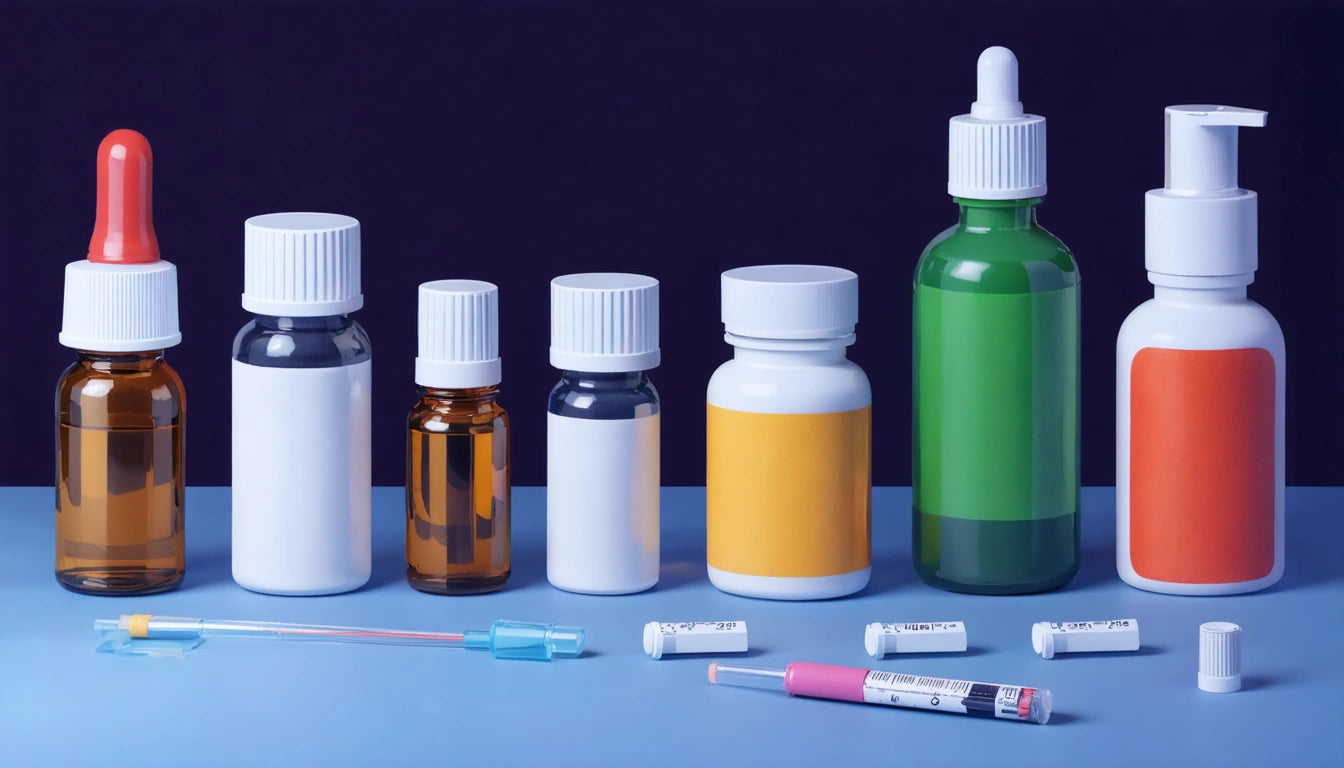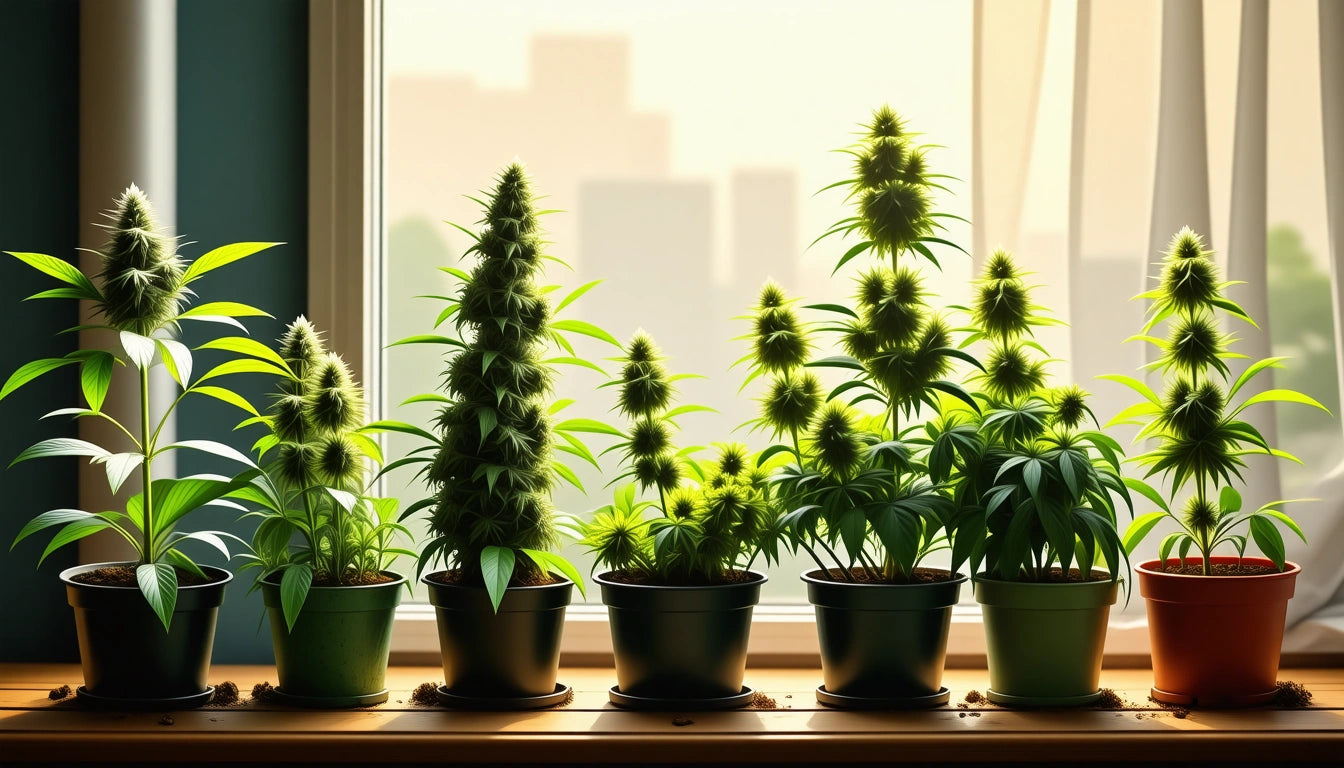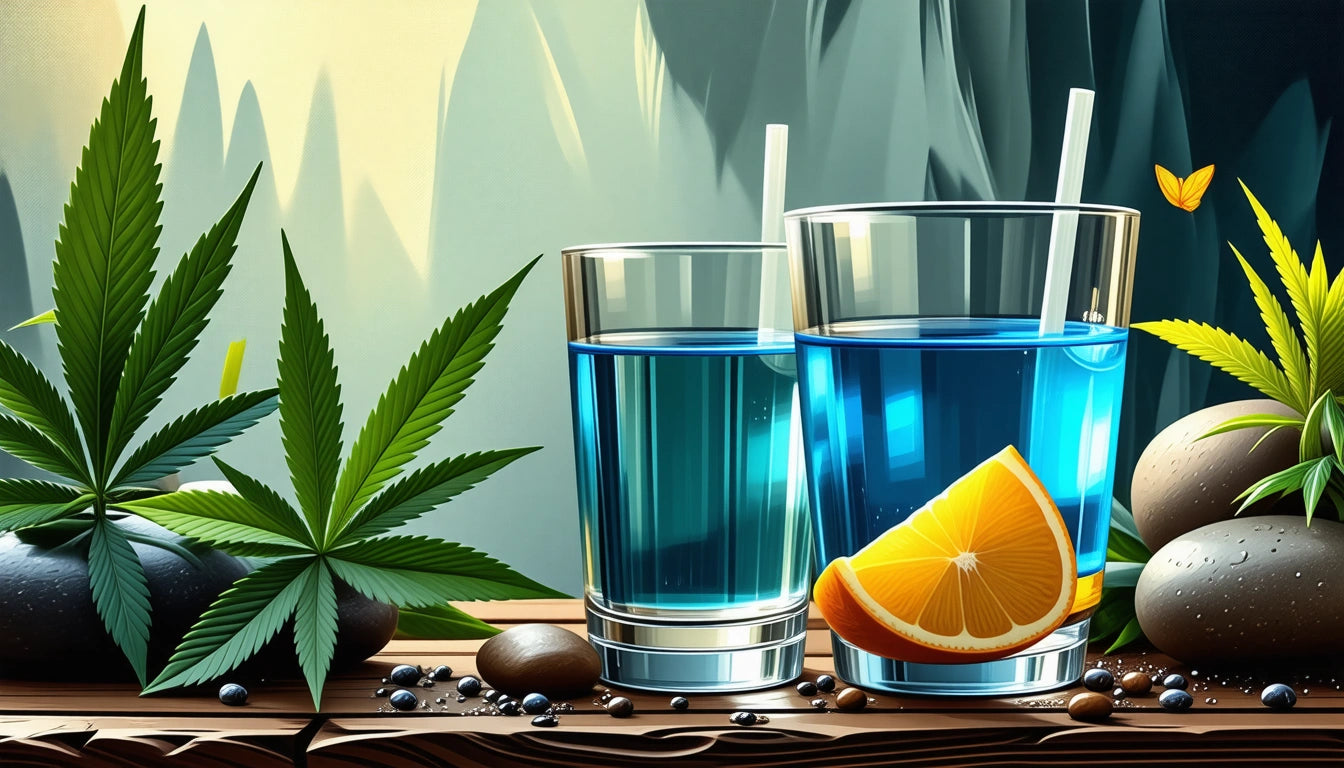Table of Contents
Do THC Topicals and Other Products Show Up on Drug Tests?
Cannabis consumers often worry about whether using THC products might result in a positive drug test, especially when using topical applications like creams, lotions, and balms. This concern is valid for both medical patients and recreational users who may face workplace drug testing or other screening situations.
How Drug Tests Detect THC
Most standard drug tests don't actually screen for THC itself but rather for THC-COOH (carboxy-THC), a metabolite produced when your liver processes THC. Understanding the difference between THC and carboxy-THC is crucial to comprehending how drug tests work.
Common drug testing methods include:
- Urine tests (most common, detecting use within 3-30 days)
- Blood tests (detecting recent use within 1-2 days)
- Saliva tests (detecting use within 24-72 hours)
- Hair follicle tests (detecting use up to 90 days)
Each method has different detection thresholds and timeframes, as detailed in this exploration of cannabis detection methods.
Topical THC and Drug Testing
How Topicals Interact With Your Body
THC topicals work differently than inhaled or ingested cannabis. When applied to the skin, THC binds to cannabinoid receptors in the skin, muscles, and nerves near the application site. The critical difference is that topicals typically don't enter the bloodstream in significant amounts.
Research suggests that when using THC creams, lotions, or balms:
- Most of the THC remains localized to the application area
- Very little, if any, reaches the bloodstream
- Without significant bloodstream presence, the liver doesn't metabolize the THC into the THC-COOH that tests detect
Exceptions and Considerations
While most topicals won't trigger a positive result, there are important exceptions:
- Transdermal patches are specifically designed to deliver cannabinoids into the bloodstream and may cause positive results
- Using topicals on broken skin may increase absorption
- High-concentration products applied liberally and frequently might potentially reach detection thresholds
Other THC Products and Detection
Unlike topicals, other THC products commonly trigger positive drug tests because they introduce cannabinoids directly into the bloodstream:
Inhalation Products
Smoking or vaping cannabis delivers THC directly to the bloodstream through the lungs. These products almost always cause positive results on drug tests, with detection possible for days or weeks depending on usage patterns.
Edibles and Tinctures
When consuming THC tinctures or edibles, the liver metabolizes the compounds, creating high levels of the THC-COOH metabolite that tests detect. Edibles can sometimes produce even longer detection windows than smoking.
Drinks and Beverages
THC-infused drinks will show up on drug tests similar to edibles. The question "do THC drinks show on drug tests" has a clear answer: yes, they typically do.
Many cannabis brands use specialized compliant packaging solutions for their products that include warnings about potential drug test implications, helping consumers make informed choices about consumption.
Factors Affecting THC Detection
Several variables influence how long THC remains detectable in your system:
Individual Metabolism
Everyone's body processes cannabinoids differently based on:
- Metabolic rate
- Body fat percentage (THC is fat-soluble)
- Hydration levels
- Age and overall health
Usage Patterns
How you use cannabis significantly impacts detection windows:
- Frequency of use (occasional vs. regular)
- Potency of products consumed
- Duration of use (recent vs. long-term)
As explained in this detailed guide on THC detection windows, occasional users may clear THC from their systems within days, while heavy users might test positive for weeks or even months.
Test Sensitivity
Different tests have varying sensitivity thresholds:
- Standard tests typically use a 50 ng/mL cutoff
- Confirmation tests may use lower thresholds (15-20 ng/mL)
- Some specialized tests can detect even lower concentrations
Navigating Drug Testing Concerns
If you're concerned about drug testing while using cannabis products, consider these practical approaches:
Understanding Product Labels
Always read product labels carefully:
- Look for THC content percentages
- Distinguish between THC, THCA, and CBD products
- Be aware that even some CBD products may contain trace THC
THCA, the non-psychoactive precursor to THC, can also trigger positive results as explained in this article on THCA and drug testing.
Timing and Planning
If you know a drug test is coming:
- Consider temporarily switching to topicals only (with the caveats mentioned)
- Allow sufficient time for your system to clear based on your usage patterns
- Stay hydrated and maintain healthy habits to support natural elimination
For those facing imminent testing, these effective strategies for passing a THC drug test provide science-based approaches.
Communicating Medical Use
In states with medical cannabis programs:
- Document your legal medical authorization
- Communicate with testing authorities in advance when possible
- Understand your rights and protections under state law
While topical THC products present minimal risk for drug test positives, informed decision-making requires understanding how different cannabis products interact with your body and testing methods. By knowing these distinctions, you can better navigate both the therapeutic benefits of cannabis and potential testing situations with confidence.











Leave a comment
All comments are moderated before being published.
This site is protected by hCaptcha and the hCaptcha Privacy Policy and Terms of Service apply.